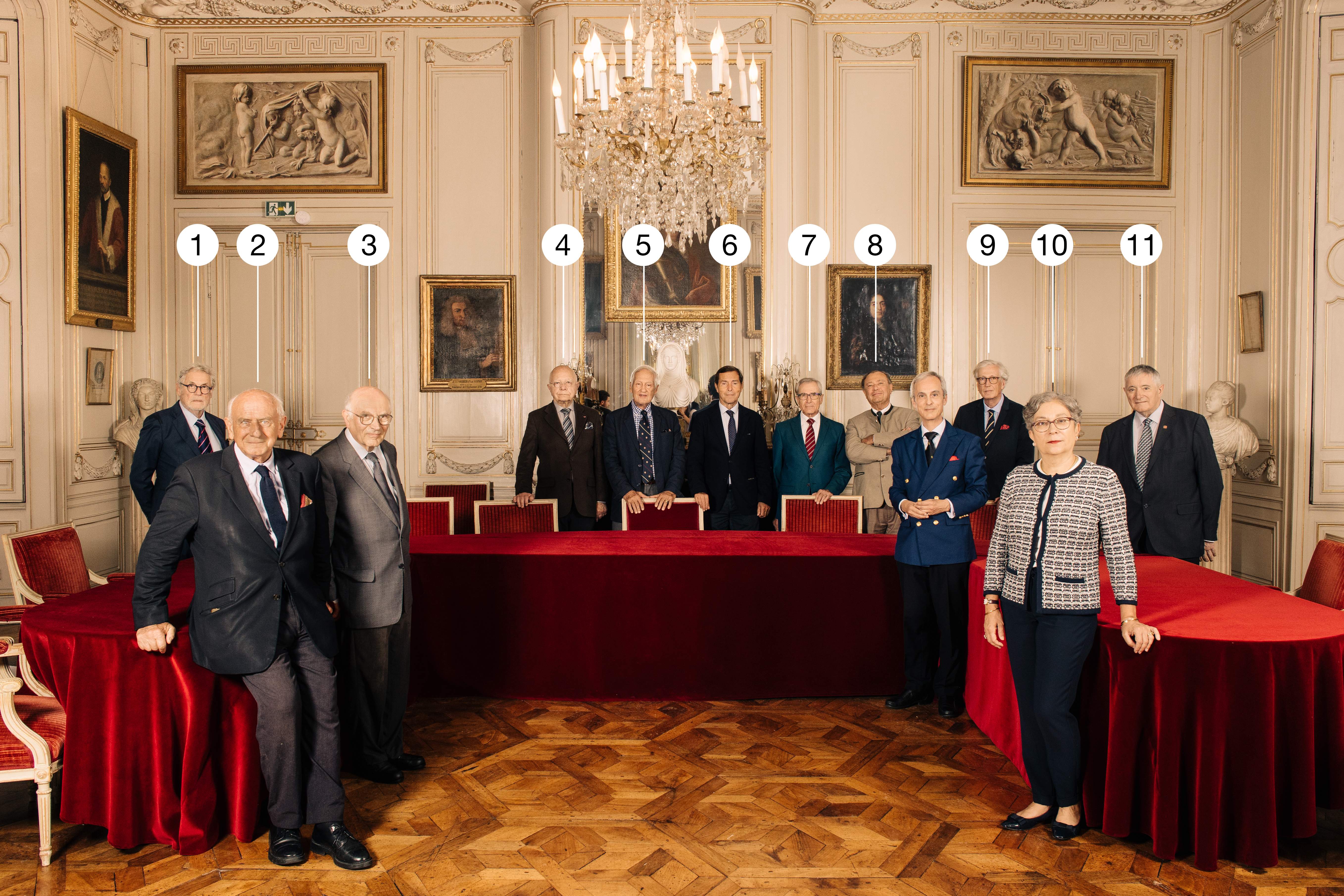My Cabinet: L’Académie des Jeux Floraux / Global
Chapter and verse
A measured French society works to preserve the art form of poetry – and bring it to a new audience.
Step into Toulouse’s Hôtel d’Assézat and you will find the oldest literary society in Europe. The former aristocratic residence, with its mouldings, bay windows and creaky floors, is where the Académie preserves and fosters the art of poetry written in French and in Occitan, the regional language spoken in the south of France, Monaco and parts of Italy.
The first records of this quintessentially Toulousian organisation date back to 1323, when seven minstrels were said to have competed against each other with their best verses. The winner was awarded a violet made from gold, thus the tradition of the jeux floraux (poetry contests) was born.
“Our goal is to reward the best poets and encourage those who we believe are the future of this art form,” says Philippe Dazet-Brun, permanent secretary of the society since 2016. Dazet-Brun is a historian by trade; his subjects are France’s interwar period and the novelist and critic François Mauriac. But he nurtured his love of poetry in parallel to his career and was invited to join the 40-member line-up of the Académie in 2009.
He now works to discover new talent through competitions and prizes that the Académie organises throughout the year in order to cultivate an interest in poetry in younger generations. “We often go to schools to talk about poetry,” he says. “Students talk to poets and write their own pieces, which makes the genre come alive. Poets are suddenly more than just dead people in their books.”
The institution recently celebrated its 700th birthday, an occasion marked with the publication of a book retracing the history of the jeux floraux, a concert by the National Orchestra of the Toulouse Capitole and, most of all, lots of poetry. The overwhelmingly positive reception from the public was an encouraging sign for the members of the Académie, who hope to see the art form reclaim its spot in the Toulousian cultural scene.
“Poetry is not always taught in the most dynamic way,” says Dazet-Brun. “But there are things you can express through poetry that you simply cannot say in any other way.” ––

Philippe Dazet-Brun
Perpetual secretary
Dazet-Brun is an elected member who holds the highest position in the Académie. He plays a central role in organising academic work, representing the institution, and communicating the research and discoveries of its members.
1. Jean-Louis Arné
Librarian
An elected member responsible for the management and organisation of the Académie’s collection of books, manuscripts and other documents.
2. Guillaume Delvolvé
Treasurer
Responsible for the management, and former archivist.
3. Abbé Jean-Claude Meyer
Deputy secretary for Assemblies
Responsible for assisting the secretary for assemblies. He is also the perpetual secretary who organises the Académie’s meetings.
4. Jean-Pierre Pech
First censor
An elected member responsible for supervising disciplinary and ethical aspects within the Académie.
5. Antoine de Lévis-Mirepoix
Maintainer
One of 40 members who contributes to the permanence of the Académie’s cultural and intellectual heritage.
6. Bertrand Desarnauts
Maintainer
Ensures the continuity of the institution’s historical practices and objectives.
7. Christian Saint-Paul
Deputy moderator
An elected member who assists the principal moderator in managing debates and discussions.
8. Count Alain d’Antin de Vaillac
Maintainer
Responsible for preserving the traditions, values and heritage of the Académie.
9. Bertrand de Viviés
Archivist
An elected member responsible for managing, preserving and showcasing the Académie’s archives.
10. Marie-Pierre Rey
Second censor
Assists the first censor in their supervision duties.
11. Abbé Georges Passerat
Maintainer
Ensures the continuity of the use of Occitan by studying the history of the founders of the Jeux Floraux.


